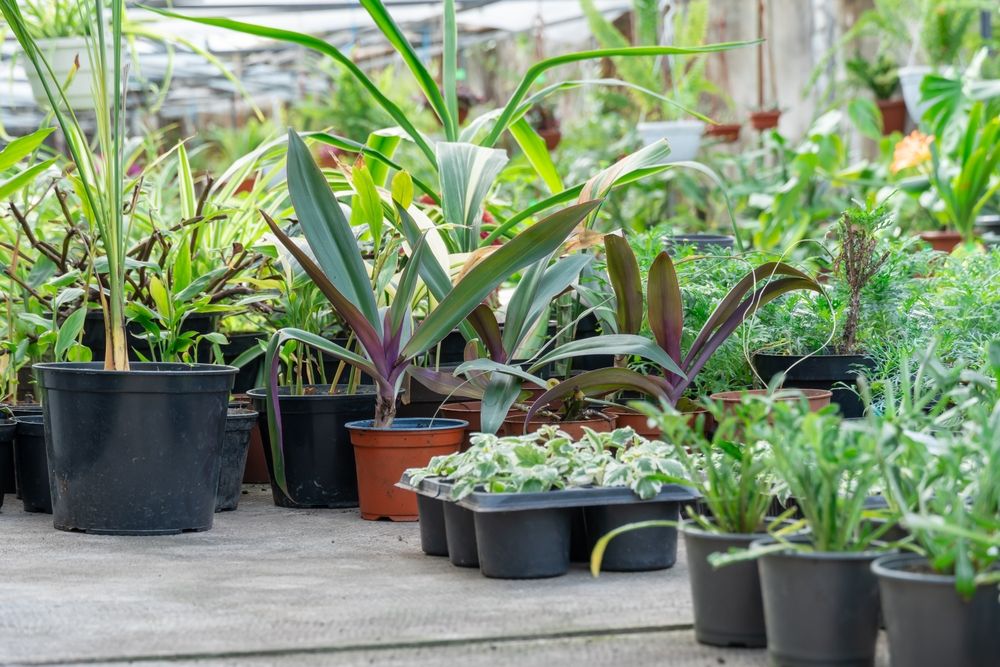Best Practices for Managing Garden Inventory and Seasonal Stock
)
Managing garden inventory and seasonal stock is an integral part of running a successful garden centre or nursery business. With the seasonal nature of gardening products, maintaining efficient control over your stock and ensuring strong supplier chain management is crucial for profitability and customer satisfaction. Whether it's spring bulbs or winter fertilisers, the ebb and flow of inventory can be challenging.
Here, we'll explore the best practices for managing garden inventory and seasonal stock, focusing on strategies that incorporate effective supplier management, supplier agreement management and supplier relationship management.
Understanding the Seasonal Nature of Garden Stock
As we all know, gardening is a seasonal activity, with sales patterns closely tied to weather conditions and plant growth cycles. Stocking the right products at the right time is vital to meet customer demands, which vary significantly throughout the year. For instance, spring sees high demand for seeds, bulbs, and soil, while autumn is a prime season for garden tools and mulches.
To navigate these fluctuating demands, garden centres must develop a robust strategy for managing seasonal stock. This requires forward planning, an efficient supply chain, and a deep understanding of the gardening calendar. A key aspect of this planning involves supplier relationship management to ensure that products are available when needed.
The Importance of Stock Forecasting
A core element of seasonal inventory management is accurate forecasting. Understanding trends from previous years can help predict customer needs in the coming season. Using sales data and market trends, garden centres can plan the amount of stock they need to order in advance.
This is where supplier agreement management becomes critical. By entering into clear agreements with suppliers about delivery schedules and quantities, you can ensure that the required seasonal stock arrives on time. Forecasting and supplier agreements must be aligned to prevent over-ordering, which could result in excess stock, or under-ordering, which could lead to disappointed customers and lost sales.

Supplier Chain Management: A Key to Success
Effective supplier chain management is essential in the garden industry, particularly given the short life span of many products. Plants, for example, are perishable and must be delivered in optimal condition to sell quickly. Similarly, seasonal items like holiday-themed garden decorations or pest control products are time-sensitive, and late arrivals can significantly impact sales. So, how can we successfully manage the supply chain?
Streamlining the Supplier Chain
Garden centres should prioritise efficiency in their supplier chain to ensure timely deliveries. This can be achieved by:
1. Building Strong Supplier Relationships: Developing close working relationships with key suppliers helps foster mutual understanding and cooperation. Supplier relationship management involves maintaining open communication channels and regularly reviewing performance, pricing, and product quality.
2. Establishing Clear Agreements: Clear, written supplier agreement management is vital. These agreements should detail product specifications, delivery schedules, and payment terms. Having clear contracts helps avoid misunderstandings and ensures that both parties have a clear idea of expectations.
3. Implementing Technology: Many garden centres are now using digital tools to manage their supply chain. Inventory management software can track stock levels, automatically reorder products when they reach a certain threshold, and forecast future needs based on historical data. This can lead to a more efficient and responsive supply chain, helping you avoid stockouts or overstocking.
Managing Suppliers for Optimal Performance
Managing suppliers effectively is crucial for keeping costs down and ensuring consistent quality. In garden inventory management, having a diverse and reliable supplier base is key to ensuring you have access to the right products at the right time.
Here are some best practices for managing suppliers:
1. Evaluate Supplier Performance Regularly: Regular performance reviews help ensure that suppliers are meeting the agreed-upon standards. This might include reviewing product quality, delivery times, and pricing. Poor performance should be addressed quickly to avoid stock shortages or quality issues.
2. Negotiate Terms Favourably: While building strong relationships is important, maintaining competitiveness in pricing and service is essential. Ensure that you are negotiating terms that are favourable to your business. This can include bulk purchasing discounts or more flexible delivery options, which are particularly useful for managing seasonal fluctuations.
3. Maintain Open Communication: Keep lines of communication open with your suppliers. This ensures you are aware of any potential delays or issues, allowing you to adjust your stock levels accordingly. Proactive communication is a key aspect of supplier relationship management, ensuring that your business runs smoothly and efficiently.
4. Diversify Your Supplier Base: Relying on a single supplier can be risky, especially in the garden industry where certain products might be affected by weather conditions or transportation delays. Building a network of trusted suppliers gives you more flexibility and resilience, helping you mitigate risks associated with stock shortages.
Best Practices for Inventory Management
1. Use Inventory Management Software: Digital tools can greatly simplify the process of managing garden stock. Modern inventory management systems allow you to track stock levels in real-time, set automatic reorder points, and gain insights into sales trends. This reduces the risk of stockouts and helps ensure that you always have the right products available when customers need them.
2. First In, First Out (FIFO): For perishable items like plants or seeds, it’s important to implement a FIFO system. This ensures that older stock is sold first, reducing the risk of waste. Organising your inventory by date of arrival helps staff easily identify which items should be prioritised for sale.
3. Regular Stock Audits: Regularly auditing your stock ensures that your records are accurate and that products are not being lost due to damage, theft, or errors. Conducting routine stock checks can help you stay on top of inventory levels and prevent issues from escalating.
4. Categorise Stock by Seasonality: Seasonal items should be categorised and stored separately from year-round products. This allows for easier management of seasonal stock and helps you plan for when these items need to be displayed prominently in the store. For example, you can prepare your autumn range as summer ends, ensuring a smooth transition between seasonal offerings.
5. Clear Outdated Stock: Unsold seasonal stock can take up valuable space in your inventory. Holding on to products beyond their peak season can result in financial losses as the products may no longer be in demand. Consider offering discounts or holding sales events to clear seasonal stock before it becomes obsolete.

Forecasting Demand Accurately
Accurate forecasting is essential for managing garden inventory. Understanding when certain products are likely to be in demand can help you avoid overstocking or understocking.
Here’s how to improve forecasting:
1. Analyse Past Sales Data: Look at your sales data from previous years to identify patterns. Which products sold well at different times of the year? Are there any emerging trends in customer preferences?
2. Monitor Market Trends: Stay informed about broader market trends in the gardening industry. For example, if environmentally friendly gardening products are gaining popularity, you can adjust your stock accordingly.
3. Collaborate with Suppliers: Suppliers often have valuable insights into market trends and can offer advice on which products are likely to be in demand. Close collaboration with your suppliers helps you stay ahead of the curve.
Enhancing Customer Satisfaction through Effective Inventory Management
Managing garden inventory and seasonal stock effectively has a direct impact on customer satisfaction. Having the right products available when customers need them is crucial to creating a positive shopping experience. Poor stock management, on the other hand, can lead to frustration and lost sales.
To enhance customer satisfaction, consider:
1. Maintaining Stock Availability: Ensure that popular items are always in stock during peak seasons. Nothing frustrates customers more than arriving at a garden centre only to find that a key product is unavailable.
2. Offering a Wide Range of Products: Having a diverse range of products can attract more customers, but it’s important to balance this with your inventory management strategy. Offering a well-curated selection of popular seasonal items ensures that your customers have choices without overwhelming your stock capacity.
3. Clear and Attractive Displays: Seasonal items should be prominently displayed in the store to capture customer attention. Organised and well-presented displays encourage customers to make purchases, and rotating these displays as seasons change keeps the store fresh and exciting.
In conclusion, managing garden inventory and seasonal stock requires a proactive and strategic approach. From supplier chain management to supplier agreement management and supplier relationship management, every aspect of the supply chain must be carefully controlled to ensure that your garden centre is stocked with the right products at the right time. By implementing these best practices, you can streamline your operations, minimise waste, and maximise sales, ensuring a successful and profitable business year-round.
At Glee, our Guest Contributor Program invites industry professionals and thought leaders to share valuable insights and hands-on expertise in their field.
If you have actionable advice and practical strategies to share, we want to hear from you! Our platform reaches a wide audience, and we’re excited to help showcase your unique perspective. Contributors will receive a featured bio, profile picture, and links to personal or company websites, with articles promoted across our social channels and email newsletter.
If you're interested in taking part, please click this link to apply!
